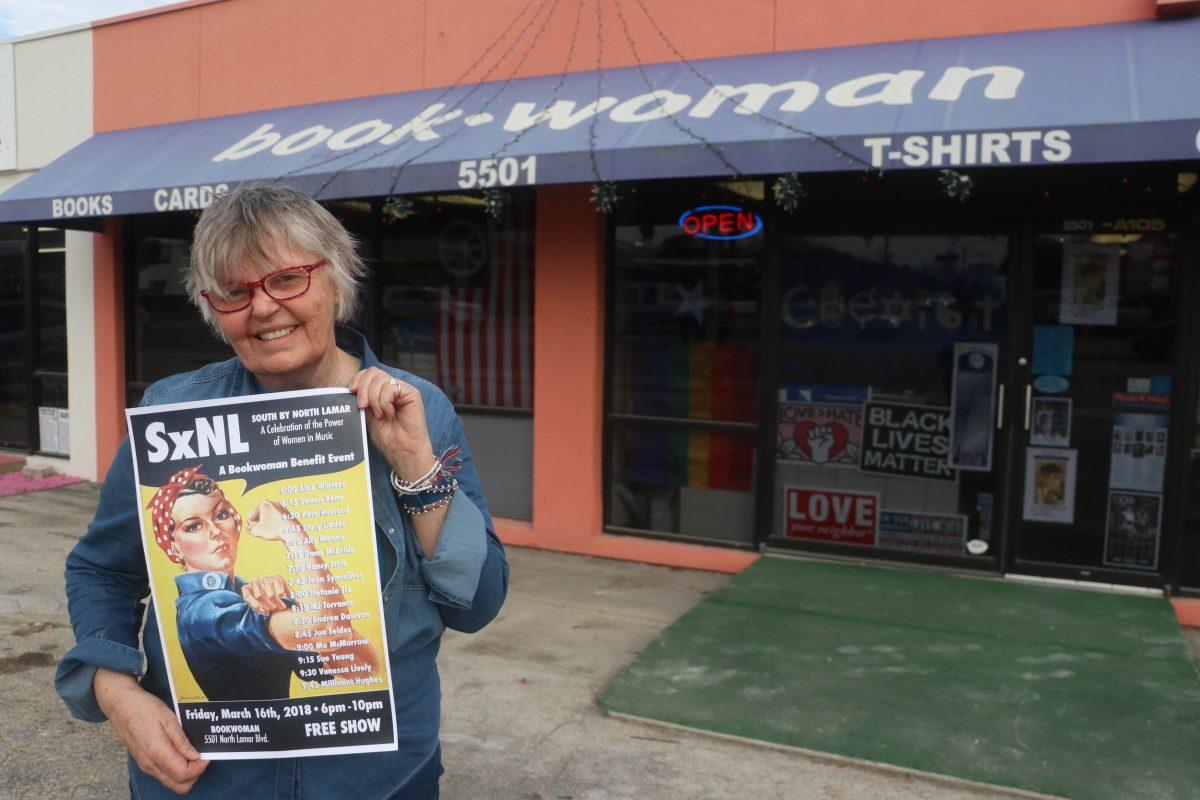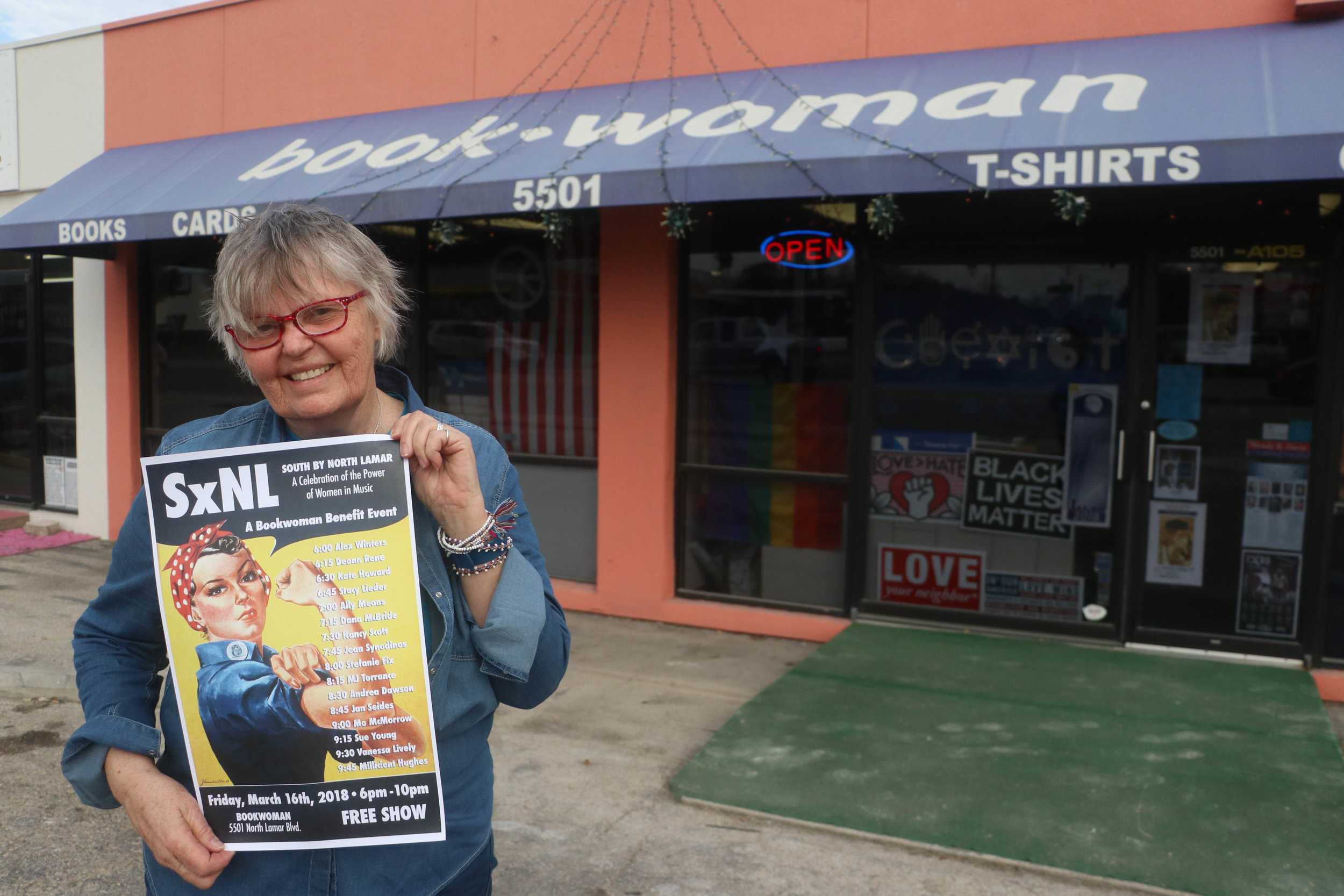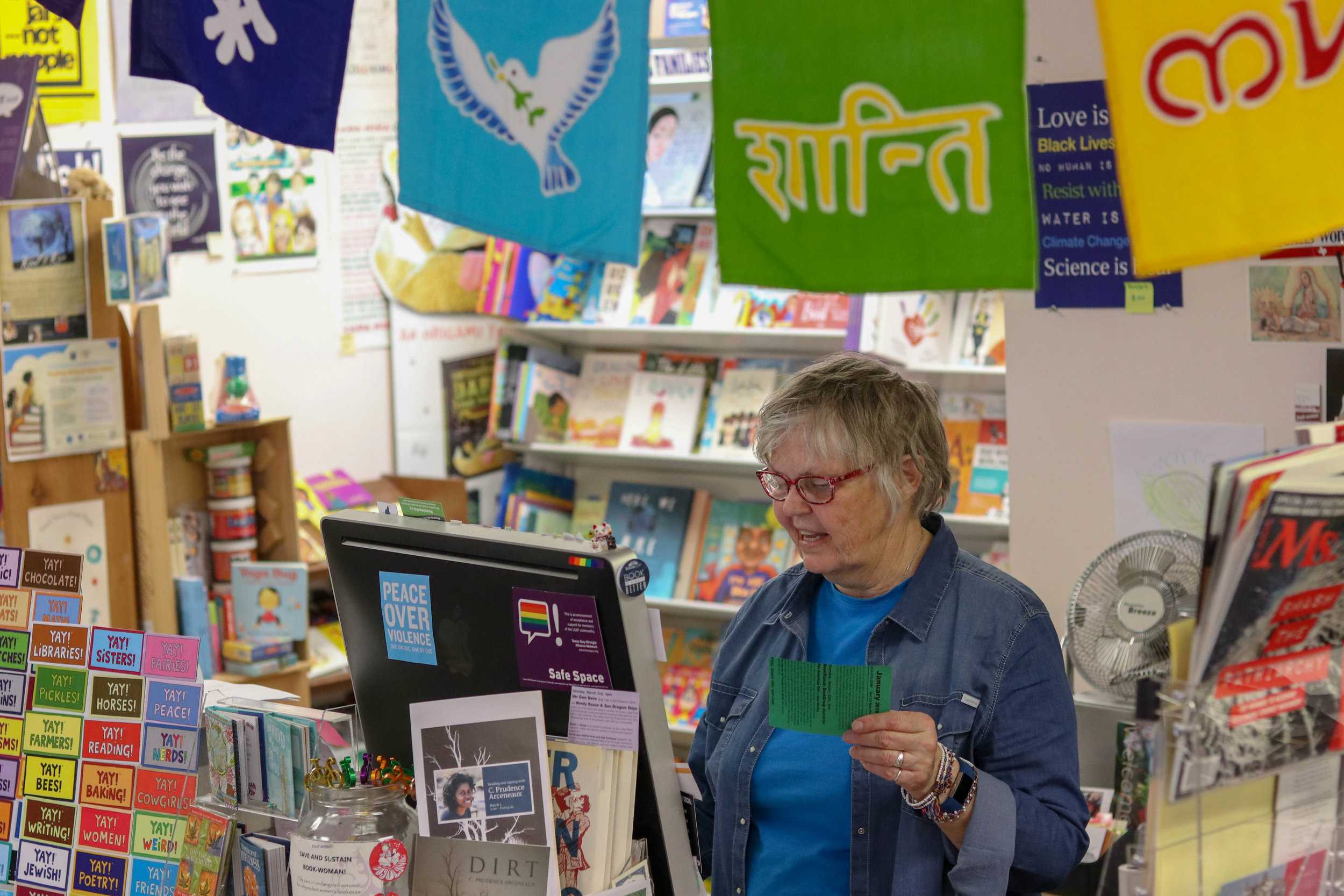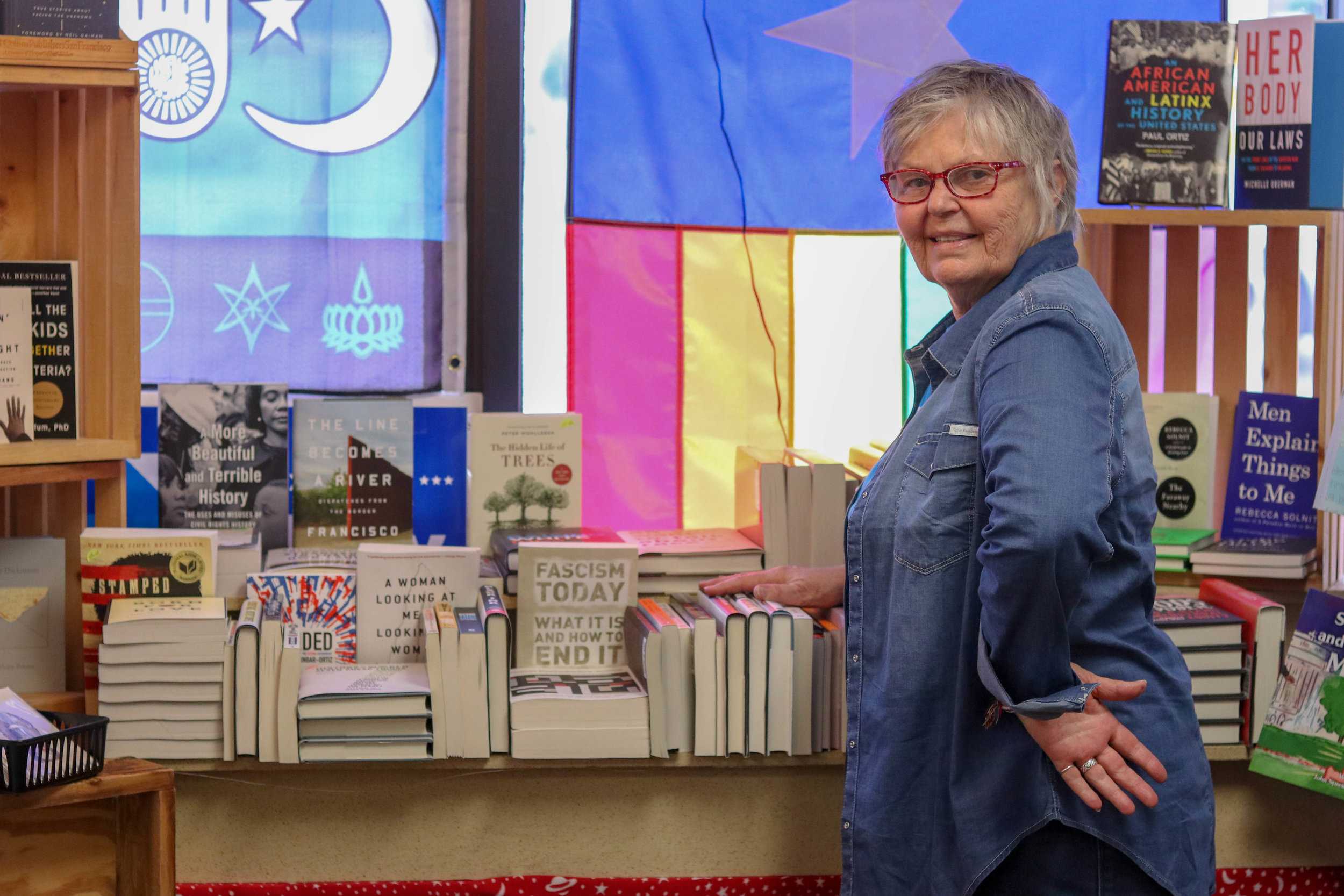Susan Post, the owner of Bookwoman, displays her poster for South by North Lamar in front of her store.
ORANGE Magazine recently spoke with the owner of Austin’s premier feminist bookstore, a local promoter of women’s liberation since 1975.
Story by Sage Foster
Photos by Alex Thompson
Since Fred Armisen and Carrie Brownstein’s show “Portlandia” was first released in 2011, fans have become familiar with the iconic “feminist bookstore” act. In the satirical sketch, the actors play two women who run Women and Women First, a bookstore in Portland, poking fun at the traditional perception of a feminist bookstore. Surrounded by a small strip of stores and restaurants around North Lamar and Houston is BookWoman, Austin’s very own feminist bookstore.
Post stands for front desk duty on Thursday afternoon, surrounded by feminist stickers, posters, books and more.
BookWoman owner Susan Post has been a part of the store since its establishment in December 1975. The idea for the store originated when two of her fellow co-founders embarked on a road trip, during which they visited multiple cities with women’s bookstores. “In the stores they had books by and about women, women’s music and consciousness-raising groups,” Post says. “They came back and they said, ‘Austin needs a bookstore.’” It wasn’t long before a collective of 13 women established the original store in a small, donated space at 21st and Guadalupe and got to work.
Post provided insights about some of the early conflicts between the group of women. “One of the issues of second wave feminism was separatism,” Post says. “Would men be allowed in the space? The collective was split on this. Depending on who was working in our store, men would sometimes be asked to leave.” This led half of the women, those who believed the space should be reserved for women, to leave BookWoman. Those remaining gradually dispersed, leaving Post as the principal owner of the store. Post, who originally worked as a librarian at the University of Texas at Austin, quit her job and got a position as a clerk at circulation in the Perry-Castañeda Library so she could dedicate more time to BookWoman.
Today, the store is bursting with color and life. “We want to have the best space possible to nurture and empower women and their allies,” Post says of the store’s goals. “I’m constantly taking the temperature of what women want and need. There’s very few people that we can’t find the perfect book for.”
The store has become increasingly intersectional over time and now carries many books by and for women of color and members of the LGBTQ community. Some of Post’s book recommendations include “Bad Girls Throughout History” by Ann Shen, “When They Call You a Terrorist: A Black Lives Matter Memoir” by Patrisse Khan-Cullors and Asha Bandele and “The Feminist Bookstore Movement: Lesbian Antiracism and Feminist Accountability” by former BookWoman employee Kristen Hogan.
While many members of the Austin community are not familiar with the store, it holds personal significance for those who are. “When I was a girl I used to feel curious and a bit embarrassed when I would visit BookWoman,” Austin resident Jasmine Castellanos says. “They have a wide selection of books about sexuality. Today I still feel the same youthful curiosity when I browse at the store, only now I pick up those more adult title. No matter your age, BookWoman is a place to feel powerful in your femininity.”
In addition to their wide selection of fiction and non-fiction books, the store also has zines and knick knacks like bumper stickers, magnets, playing cards and patches. Austin resident Margaret Azarmehr’s favorite item are the bumper stickers. “They say all sorts of funny things,” Azarmehr says “One of the ones I have says, ‘W.I.T.C.H.: Wonderfully Intelligent Tenacious Caring Hottie.’”
South by North Lamar is scheduled for March 16, 2018 and includes many women musicians you can meet at the bookstore.
Though BookWoman is a small, independently run business, it has been able to stay afloat for 43 years because of the love and support of the Austin community. One of Post’s goals is to spread more awareness among new members of Austin about the resources of the store, which also hosts readings, talks and special events.
As more and more sociopolitical dialogue and activism takes place online, physical spaces of safety and empowerment for the oppressed are not always widely known. However, Post speculates that with the rise of feminist dialogue amongst millenials, the book store may be gaining more recognition.“There’s never been a time where a feminist bookstore hasn’t been relevant, but now we’re being rediscovered,” Post says. “We can only hope our values will replicate and spread like wildflowers.”














































